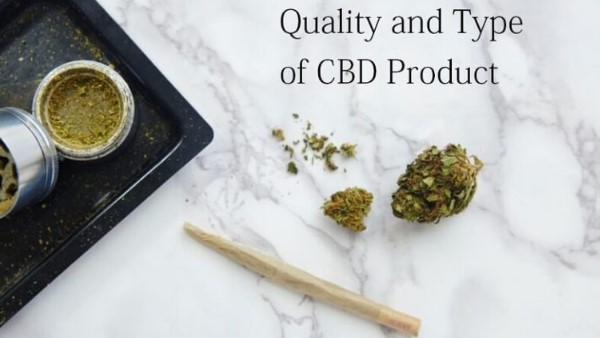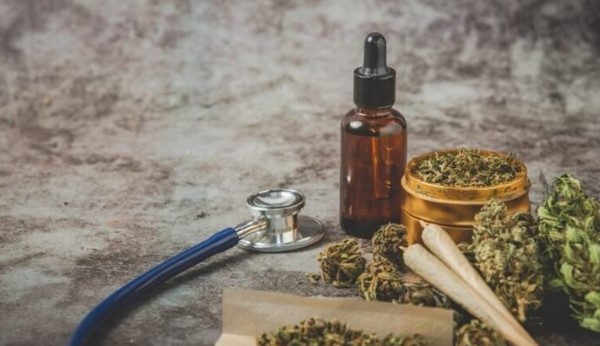Are you finding that your CBD oil just isn’t delivering the results you expected? Maybe you’re new to CBD and wondering why it’s not living up to the hype. There’s a possibility that the culprit behind your CBD experience lies in something known as tolerance.
As we delve into the world of cannabinoids, whether they’re derived from plants or created synthetically, our bodies can adapt over time. This adaptation can lead to a need for higher doses to achieve the same effects. It’s a phenomenon similar to what you may have heard about with THC, the psychoactive component of cannabis.
In this article, we’ll unravel the complexities of CBD tolerance, explore safety considerations, and delve into the art of sourcing quality CBD products. Whether you’re a seasoned CBD user or just starting, understanding CBD tolerance is key to making the most out of your CBD journey.
What is CBD Tolerance?
CBD tolerance refers to the body’s reduced responsiveness to cannabidiol (CBD) over time, which results in the need for higher doses of CBD to achieve the same desired effects. In simpler terms, when you use CBD regularly, your body can become accustomed to it, making it less effective at the same dosage. It’s essential to recognize that CBD tolerance is distinct from THC tolerance, which is associated with the psychoactive compound in cannabis.
Know that, not everyone develops significant CBD tolerance, and its development can vary from person to person based on several factors. These factors include the dosage of CBD consumed, the frequency of use, individual metabolism, the quality and type of CBD product, and the presence of other medications or substances that may interact with CBD.
Can You Build a CBD Tolerance?
One of the most common questions surrounding CBD is whether it’s possible to build a tolerance to it. The answer is complex and nuanced. While some individuals may experience a reduced response to CBD with prolonged use, it’s important to recognize that not everyone develops significant tolerance. The degree to which tolerance develops varies from person to person and depends on several key factors.
Dosage
The dosage of CBD you consume plays a significant role in the development of tolerance. Regularly using high doses may lead to tolerance more quickly, while lower, controlled doses might delay or minimize its onset.
Frequency of Use
How often you use CBD can also influence tolerance. Frequent use, especially multiple times daily, may lead to a quicker buildup of tolerance compared to sporadic or occasional use.
Individual Metabolism
Individual differences in metabolism can impact how quickly tolerance to CBD develops. Some people metabolize CBD more efficiently than others, affecting the rate at which their body adapts to its presence.
Quality and Type of CBD Product
The quality and type of CBD product you choose can make a difference. Full-spectrum CBD products, which contain a range of cannabinoids and terpenes, may interact differently with your endocannabinoid system compared to isolated CBD products.

The Presence of Other Medications or Substances
If you’re taking other medications or substances alongside CBD, it can influence how your body processes and responds to CBD, potentially affecting the development of tolerance.
Understanding these factors can help you make informed decisions about your CBD use. If you’re concerned about building tolerance, it’s advisable to start with lower doses, avoid excessive use, and consider tolerance reduction strategies like tolerance breaks, which we’ll explore later in this article.
Health Effects of High Cannabis Tolerance
Developing a high tolerance to CBD or cannabis-related products may have far-reaching health effects that extend beyond the immediate challenges of needing larger doses for desired effects. It’s essential to be aware of the potential consequences, which include:
- Marijuana Addiction Risk: While not everyone who uses cannabis becomes addicted, chronic or heavy use can lead to addiction or dependence, much like any other drug. This chronic disorder is increasingly prevalent in the United States and can have a profound impact on one’s overall well-being.
- Altered Brain Development: Adolescents and young adults are particularly vulnerable to the adverse effects of cannabis, including potential alterations in brain development. Long-term, heavy use during these critical developmental stages may result in cognitive and emotional changes.
- Chronic Bronchitis (for Smokers): Those who opt for smoking cannabis face additional health risks, including chronic bronchitis. Inhaling smoke, whether from cannabis or tobacco, can irritate and damage the respiratory system over time.
- Cognitive Impairment: High cannabis tolerance may be associated with cognitive impairment, impacting memory, decision-making, and problem-solving abilities. This can have significant consequences in both personal and professional life.
- Risk of Chronic Psychosis Disorders: While the link between cannabis use and psychosis disorders like schizophrenia is complex and not fully understood, high and frequent cannabis use, especially in susceptible individuals, may increase the risk of developing such conditions.
In addition to these long-term effects, it’s essential to recognize the potential adverse consequences of short-term cannabis use, especially when tolerance is high. These effects can include:
- Altered Judgment: Cannabis can impair judgment, leading to risky behaviors and poor decision-making. This effect can be particularly concerning when operating machinery or vehicles.
- Anxiety or Paranoia: Some individuals may experience increased anxiety or feelings of paranoia during or after cannabis use, especially when using strains with high THC content.
- Impaired Motor Coordination: Cannabis can affect motor skills and coordination, potentially leading to accidents or injuries.
- Short-term Memory Impairment: Memory impairment is a common short-term effect of cannabis use. It can impact the ability to recall recent events or information.
Do You Need Tolerance Breaks for CBD?
To manage tolerance effectively, some users turn to tolerance breaks—periods of abstinence from CBD use. These breaks allow the endocannabinoid system to reset, potentially restoring CBD’s effectiveness. But do you really need them, and how can they benefit you? We’ll explore the concept of tolerance breaks and their role in optimizing your CBD experience.
How to Lower CBD Tolerance
If you find yourself with a high CBD tolerance, there are several strategies you can employ to lower it and regain sensitivity to CBD. Managing CBD tolerance requires a proactive approach, and in this section, we’ll delve into practical strategies for responsible CBD use.
Dosing Strategies
Experimenting with dosing is a fundamental step in reducing CBD tolerance. Consider the following approaches:
- Microdosing: Instead of taking large doses, try microdosing with smaller, more frequent amounts of CBD. This can help your body readjust to lower CBD levels and may restore sensitivity over time.
- Adjusting Your Dosing Schedule: Modify how often you take CBD. For instance, if you’ve been using it daily, try skipping days or using it on an as-needed basis. This intermittent dosing can prevent tolerance from escalating.
Cycling CBD Products
Switching between different types of CBD products or brands can be an effective strategy to expose your body to a variety of cannabinoids and terpenes. Different formulations may interact differently with your endocannabinoid system, potentially reducing tolerance. Consider trying full-spectrum CBD products, which contain a broader range of compounds.
Professional Guidance
Knowing when to consult a healthcare provider is essential, especially if tolerance becomes problematic or if you have specific medical concerns related to CBD use. They can provide personalized advice, evaluate your unique situation, and help you make informed decisions about managing your CBD tolerance.
Conclusion
Understanding CBD tolerance is vital as it involves your body getting used to CBD over time. If you feel your body is not responding to CBD like it used to, there are ways to handle it. You can try taking smaller doses more often or taking breaks from using it. Switching between different CBD products might help too. And if you’re ever unsure, don’t hesitate to talk to a healthcare provider for advice. Remember, it’s about finding the best way to use CBD for you, as everyone’s journey with CBD is unique. Stay informed and prioritize your well-being throughout the process.




